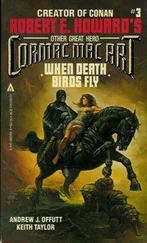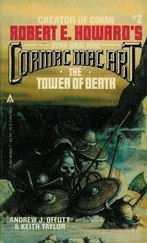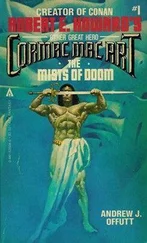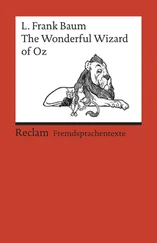Andrew Offutt - The Undying Wizard
Здесь есть возможность читать онлайн «Andrew Offutt - The Undying Wizard» весь текст электронной книги совершенно бесплатно (целиком полную версию без сокращений). В некоторых случаях можно слушать аудио, скачать через торрент в формате fb2 и присутствует краткое содержание. Жанр: Фэнтези, на английском языке. Описание произведения, (предисловие) а так же отзывы посетителей доступны на портале библиотеки ЛибКат.
- Название:The Undying Wizard
- Автор:
- Жанр:
- Год:неизвестен
- ISBN:нет данных
- Рейтинг книги:5 / 5. Голосов: 1
-
Избранное:Добавить в избранное
- Отзывы:
-
Ваша оценка:
- 100
- 1
- 2
- 3
- 4
- 5
The Undying Wizard: краткое содержание, описание и аннотация
Предлагаем к чтению аннотацию, описание, краткое содержание или предисловие (зависит от того, что написал сам автор книги «The Undying Wizard»). Если вы не нашли необходимую информацию о книге — напишите в комментариях, мы постараемся отыскать её.
The Undying Wizard — читать онлайн бесплатно полную книгу (весь текст) целиком
Ниже представлен текст книги, разбитый по страницам. Система сохранения места последней прочитанной страницы, позволяет с удобством читать онлайн бесплатно книгу «The Undying Wizard», без необходимости каждый раз заново искать на чём Вы остановились. Поставьте закладку, и сможете в любой момент перейти на страницу, на которой закончили чтение.
Интервал:
Закладка:
Thulsa Doom, Doom…
The torchlight flickered off smooth, close-set walls and floor smooth and soft with its layer of dust. The tunnel ran straight now, without the constant leftthen-right baffles.
Though he was not able to see ahead more than a few body-lengths, Cormac knew by the sensation in legs and broad back that he had begun to ascend. He was surprised. He had assumed the tunnel ran on down , to the sea. Instead, it leveled at about the place where Cutha Atheldane had died… and risen again… and then it began to elevate once more, though at a most gentle incline.
Cormac walked on, ascending.
Was the tunnel turning, bending? He could not be sure; he was unable to see far enough ahead to make such a determination. It seemed so; he felt that he was both ascending and rounding a long gentle bend.
He walked on. Dust puffed up about his legs. The name walked with him, grimly stalking the hallways of his mind. Thulsa Doom, Doom…
Now he saw clearly a curve up ahead, for it was somehow illumined. The tremulous light from the glim he carried rayed out not so far, but by some other light he could see that curving wall, could see the tunnel disappear to the left. A feeling of the eerie eddied about him with the dust. It strove to settle between his shoulder blades and chill his back, a nervousness and foreboding that had no name and could not be explained.
Cormac shrugged and twitched his shoulders as if to free them of something palpable.
He had reached across his lean, mailcoated belly to set hand to his sword pommel, shaped for enwrapping fingers. His fingers enwrapped it. He felt well-shaped, heat-hardened wood and the cool touch of insets of bronze and silver, tooled and chiseled. He drew the long sword slowly; there was only the faintest of sounds as steel blade slid from leather-covered, bronze encircled scabbard. Dust hissing and eddying about his feet and lower legs, he paced watchfully forward.
Cormac began rounding the long curve in the tunnel, and two facts made themselves known to his senses. The light came not from the walls, but from ahead. It grew brighter. And the air was better, far less stagnant, imbued with less of that unpleasant mephitic odour.
Tunnel’s end at last , he thought, and stopped.
First he checked his strike-a-light. Then, snuffing the torch in thick dust, he placed it against the wall of the corridor. He gripped his shield; while he had carried the torch, he had but “worn” the targe, with his arm through its straps. Above, over his shoulders, was the coil of rope.
Sword and shield at ready, he advanced along the curving hall, of earth and stone. The light grew and the air became sweeter still. He felt the stir of a faint breeze.
Then he saw daylight. A patch of fleece-decorated cerulean sky formed the very top of a slender oval opening; below the sky reared shadowed rock of grey and black. Unmenaced but silent and ready, he went forward. The patch of sky grew. He saw that the aperture through which he must pass was little more than the width of his shoulders. Clean air wafted in, bearing with it the familiar saline tang of the sea.
Cormac mac Art emerged from the subterrene escape-route from the Castle of Atlantis, and he drew in great lungsful of clear clean air, which he released in long suspirations. He looked about.
Above him: the sky of autumn, in late afternoon. To his left, a stony wall, slightly convex, so that a man standing above might well look down into the shadowy slice in the rock without seeing the niche that was the tunnel’s mouth. Directly ahead: the same dark stone. Behind him: the niche; a doorway opening into the tunnel. And to his right: another niche, also slender and framed all in sky. The tunnel emerged through a cleft into another, then, a sort of roofless vestibule.
After a few moments, Cormac left it. The coiled rope on his shoulder brushed the stone on his left.
First he saw the sea, far below. At nearly the same time, he both saw and felt the existence of another natural phenomenon, a sinister one. Cormac stopped, very suddenly indeed. Simultaneously he did his best to lean backward.
He was on the brink of death.
Once, a long granitic slope had perhaps swept down to the dark sea. Surely only if that were true would the tunnel have been brought to its terminus here. But inconceivable time had passed, and wrought its changes. Now an escape tunnel ending at this place was no less than insanity. Over the thousands of years, wind and sea had done their work. The slope had been chewed up and swallowed, the ocean moving in as a predator on its quarry.
Yet Cormac knew how great rearing formations of solid granite could break ; he remembered the “earth”-quake he himself had experienced so recently at sea, not far from here. Perhaps there had been no slow relentless chewing away at all. Perhaps the slope’s death had not been the result of weathering, but had taken place all in a day-or within seconds.
Whatever the cause, the Gael was now on the brink of a cliff.
He stood on a short narrow shelf atop a sheer beetling precipice that could have been laid with a plumb-line. The basaltic butte dropped from his feet straight to a jumble of jagged rocks against which the restless sea lapped. It was a nigh-straight wall, as though he stood atop an unusually high watch tower of one of those Roman forts in Britain, or a Cromlech raised to the glory of Crom by an army of devoted giants.
He stood as if on a natural balcony above the abyss.
How far below were those ominous crags and uprearing rocks and lapping waters he could not know; there was no measurement available, no frame of reference. The vertical distance was many times his own height: many.
Nor yet was he at the very summit of this wall of rock that frowned down upon the hungry sea as though erected as a bulwark against it. Granite and anciently piled ejecta rose behind him a spear-length more.
Cormac stood gazing out over the ocean. It was dark from this height, not blue but a vast lonely plain of opaque, dark green glass. Well out-probably a day’s journey away, were one able to walk that porphyritic plain-the water shone where the sun’s slanting rays turned it into an opalescent mirror. On and on, out and out the ocean ran uninterrupted, until it met a sky going deep blue; the sun was behind Cormac.
Here was the nearest to any concept of eternity, Cormac mac Art mused, that living man could approach in his limited mind: Timeless sea becoming sky across untold distance, seen from many spearlengths above.
That thought brought taunting horror and menace swooping back into his brain like hungering vultures. Their wings thrummed… Any living man. But Cutha Atheldane; was he a living man? This Thulsa Doom who had lived and practiced his evil sorceries so long ago, so incredibly long ago-was he a living man?
By some unholy and totally arcane means Thulsa Doom seemed to have survived the enormous span of years separating Cormac’s time from that of Kull. The wizard must have a more knowledgeable concept of inconceivable eternity than any man on the ridge of the world, whether living or dead… or Undead.
Cormac jerked his head as if he’d been struck on the helm and sought to clear his brain of the awful sound-from-within known to many warriors.
Turning, he squinted to look upward. Then he lowered his head to peer within the sheltered crevice into which the tunnel debouched. Aye… that was a handhold sure, and that little eruption of basaltic rock would bear his foot, and that depression would accept two fingers…
He stood high up, but it were possible to stand higher still. The call to ascend to the summit was irresistible. Entering the little alcove of rock once more, so that a fall would not mean automatic death, he ascended.
Читать дальшеИнтервал:
Закладка:
Похожие книги на «The Undying Wizard»
Представляем Вашему вниманию похожие книги на «The Undying Wizard» списком для выбора. Мы отобрали схожую по названию и смыслу литературу в надежде предоставить читателям больше вариантов отыскать новые, интересные, ещё непрочитанные произведения.
Обсуждение, отзывы о книге «The Undying Wizard» и просто собственные мнения читателей. Оставьте ваши комментарии, напишите, что Вы думаете о произведении, его смысле или главных героях. Укажите что конкретно понравилось, а что нет, и почему Вы так считаете.











